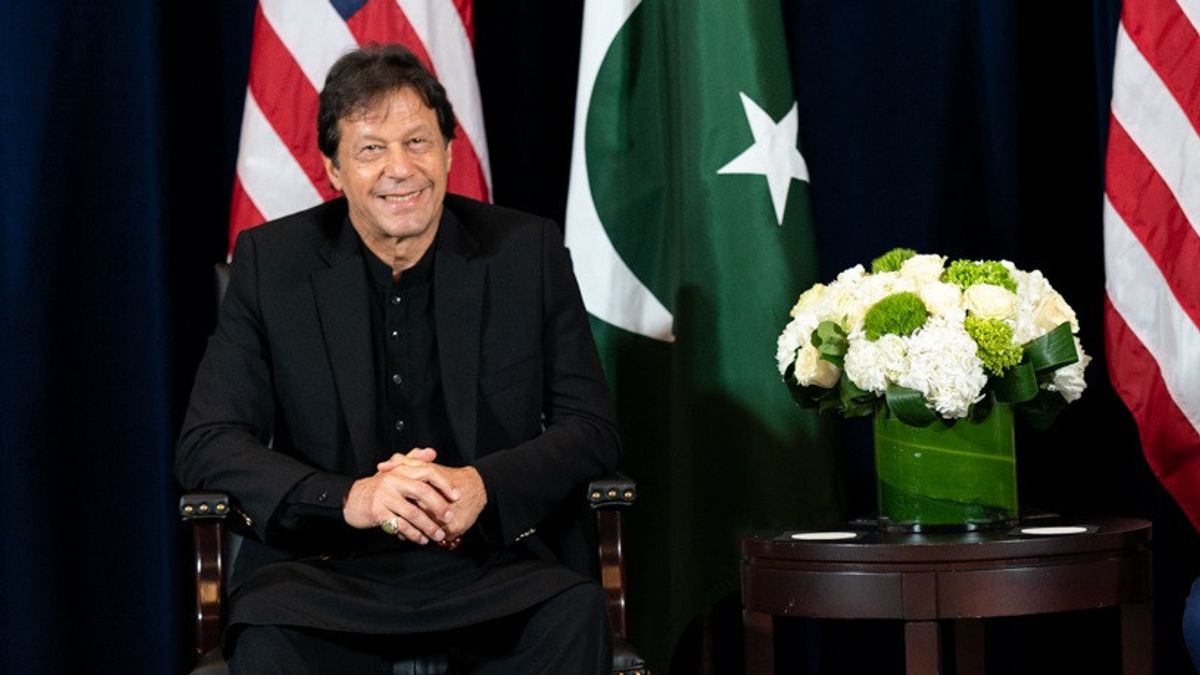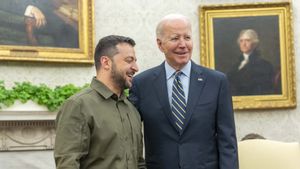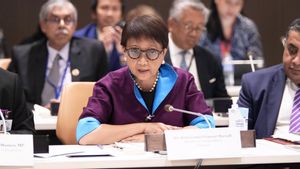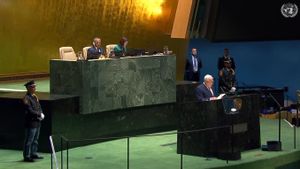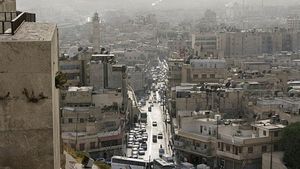JAKARTA - Pakistan's General Election Commission (ECP) on Thursday announced the country will hold elections in January 2024, nearly three months later than its original schedule, with a number of names being named as the next prime minister candidates.
Originally, Pakistan was scheduled to hold an election in November 2023. However, it had to be postponed due to the new demarcation of the electoral district, based on the results of the latest census.
In a statement, the ECP said the vote would be held at the end of January, after the entire process which included filing nominations, filing appeals and campaigns were completed.
Pakistan is currently run by a temporary government under interim Prime Minister Anwaar Ul Haq Kakar, who was formed to oversee general elections.
Kakar, who is in New York to attend the annual hearing of the UN General Assembly, said at an event hosted by the Foreign Relations Council, the process of determining the electoral district by Pakistan's General Elections Commission and public consultations on this matter may take three or three or three and a half months.
"That's what we will do, maybe by the end of January, we will hold elections and elect a new government," he said.
Meanwhile, the Election commission has questioned the temporary government's impartiality led by Kakar, who is from a pro-military party, saying they appear to be in line with former jailed Prime Minister Imran Khan.
Currently, former prime minister Khan, the main opposition leader, cannot fight in elections after being banned from public office for five years, along with a corruption investigation.
When asked at CFR whether all parties could take part in the election, Kakar said: "I have no confusion in my mind, or in the government, that all parties registered with the Pakistan General Elections Commission are legitimate, politically, morally allowed, and they will participate in the political process."
The Pakistan Party Tereek-e-Insaf (PTI) led by Khan hopes to exploit his supporters' sympathy and anger and repeat his 2018 victory. However, amid a continuing dispute with the military, PTI's prospects rely on efforts to ease tensions with generals, which seems unlikely.
Apart from PTI with Khan, there are two other competitors, the Pakistan-Nawaz Muslim League (PML-N) led by the last Prime Minister Shehbaz Sharif and the Pakistani People's Party (PPP).
Prime Minister three times Nawaz Sharif, his brother Shehbaz and PML-N are senior partners in the last coalition government, trying to return from exile.
However, with the corruption penalty still in effect against her, Shehbaz remains the leading candidate to return to power.
SEE ALSO:
Meanwhile, Bilawal Bhutto Zardari from PPP who is also the son of former Prime Minister Benzir Bhutto, is included in the main candidate. He made a breakthrough at home and abroad in his first position in government as foreign minister during the end of the government, widely seen as a candidate for prime minister in the future.
It is known that the armed forces have ruled the country for more than three decades, having a huge influence on politics, including forming and destroying civilian rule.
Election results are rarely widely accepted in Pakistan and the perception of bias can further overshadow the credibility of the process.
The English, Chinese, Japanese, Arabic, and French versions are automatically generated by the AI. So there may still be inaccuracies in translating, please always see Indonesian as our main language. (system supported by DigitalSiber.id)
